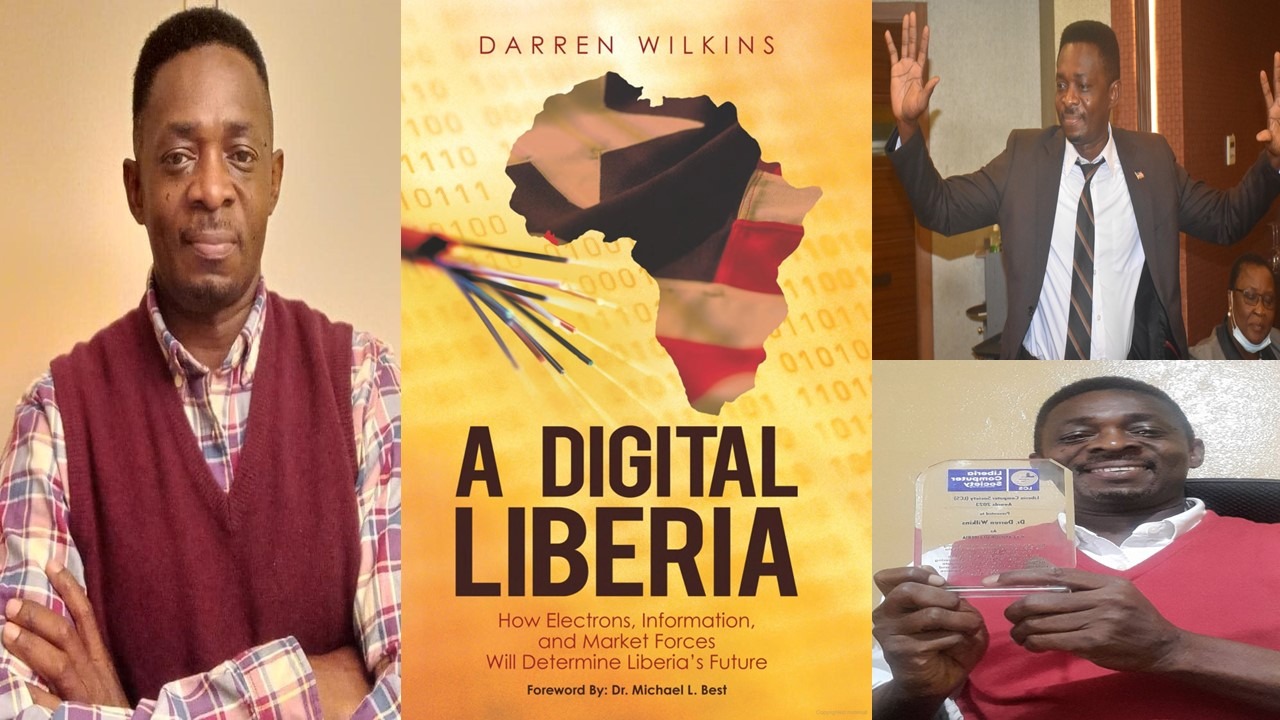In a compelling call to action, Liberian ICT professional Dr. Darren Wilkins emphasizes the urgent need for the Liberian government to invest in and leverage Information and Communication Technologies (ICTs) for a more productive economy. Dr. Wilkins warns that failure to prioritize ICT investment may lead to the country relying on external sources, like Ghana, for essential software, even for critical functions such as elections and governance.
Highlighting the historical neglect of ICT initiatives, Dr. Wilkins sheds light on a series of initiatives that, despite being set in motion, have fallen into disuse due to inadequate support and investment. These initiatives, once promising, now serve as a stark reminder of the challenges facing Liberia’s journey towards a tech-driven future.
- Domain Policy Disregard:
The establishment of a policy mandating government entities to use .GOV.LR domains was a positive step. However, the non-compliance by some entities, reverting to public platforms and .COM domains, illustrates the challenges in enforcing and sustaining such policies. - Inactive e-Government Mechanism:
The introduction of an e-government mechanism with a Chief Information Officer (CIO) Regime started with promise but later became inactive. The relegation of the CIO-RL to the Ministry of Posts and Telecom contributed to the overall dormancy of the system. - Lost E-Government Strategy Document:
The development of an E-Government Strategy document was a strategic move, but its current unavailability raises questions about the preservation and accessibility of foundational planning documents. - Vanished Enterprise Architecture Document:
The disappearance of the Enterprise Architecture document compounds the challenges, as it reflects a loss of the structural framework meant to guide the government’s ICT infrastructure. - Neglected Web Standards:
The establishment of Web Standards to guide website development has faced challenges, with some government entities opting for non-compliant domains. This compromises the consistency and security of online government presence. - Abandoned VoIP Cost Reduction Project:
The VoIP project aimed at reducing costs for the government was discontinued, indicating a setback in the pursuit of cost-effective communication solutions. - Struggling LRREN Initiative:
The LRREN initiative, designed to provide affordable internet access to academic and research institutions, continues to face challenges, hampering progress in education and research. - Unrealized Connectivity Plans:
Despite plans for Government MACs to connect via LTC and CSquared, the lack of implementation is evident. Some government entities still rely on external providers, undermining the government’s own infrastructure investment. - Inactive E-Liberia Project Office:
The E-Liberia Project Office, meant to drive government ICT implementation, is not as active as envisioned, raising concerns about the effective execution of ICT-related initiatives. - Dormant Eliberia.Gov.Lr Portal:
The Eliberia.Gov.Lr web portal, designed as a one-stop-shop for government services, remains dormant, impeding the efficiency and accessibility of public services. - Stalled Cybersecurity Legislation:
Despite efforts to address cybersecurity concerns with a proposed document to the Legislature, the lack of progress raises questions about the government’s commitment to securing its digital infrastructure.
Dr. Darren Wilkins’ comprehensive assessment of these challenges underscores the critical need for a renewed commitment to ICT investment and implementation. Without addressing these foundational issues, Liberia risks jeopardizing the strides it has made in the tech sector, hindering the continuity and effectiveness of government initiatives. The call to prioritize ICTs is not just a suggestion but a crucial step towards securing Liberia’s future in the digital age.




